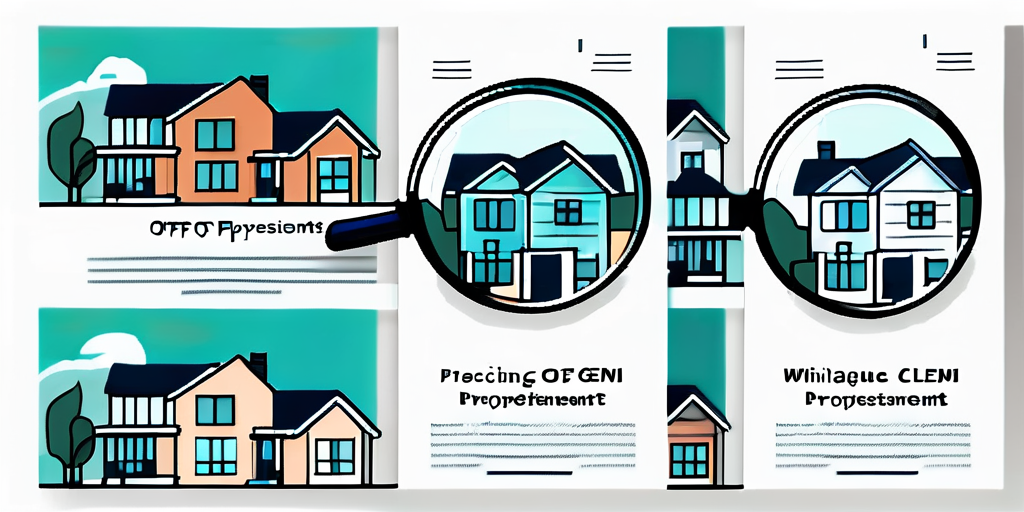Investing in real estate can be a lucrative venture, but with the traditional real estate market becoming more competitive, many investors are turning to off-market properties as a way to find unique opportunities. Off-market properties refer to properties that are not listed on public platforms and may be available only through private networks or direct outreach. In this article, we will delve into the benefits of investing in off-market properties and explore how to find and evaluate these hidden gems.
Understanding Off-Market Properties
When it comes to real estate investing, off-market properties have become a hot topic of discussion. These properties, also known as pocket listings, offer a unique opportunity for investors to find hidden gems that are not actively advertised or listed through typical real estate channels. Instead, they are often shared privately among investors or through personal connections.
So, what exactly are off-market properties? Well, they are properties that fly under the radar, away from the prying eyes of the general public. They offer a level of exclusivity that can lead to unique investment opportunities. Unlike traditional real estate listings, off-market properties don’t have a prominent presence on popular real estate websites or in the local newspapers. Instead, they are whispered about in hushed tones among real estate professionals and savvy investors.
Definition and Characteristics of Off-Market Properties
Off-market properties are like hidden treasures waiting to be discovered. They are properties that are not actively advertised or listed through typical real estate channels. Instead, they are often shared privately among investors or through personal connections. These properties offer a level of exclusivity that can lead to unique investment opportunities.
Imagine stumbling upon a beautiful house tucked away in a quiet neighborhood, away from the hustle and bustle of the open market. This is the allure of off-market properties. They offer a sense of secrecy and exclusivity that can make investors feel like they have stumbled upon a hidden gem.
One of the defining characteristics of off-market properties is their limited exposure. Unlike traditional real estate listings that are plastered all over the internet and local newspapers, off-market properties operate in the shadows. They are not widely advertised, which means there is a reduced pool of potential buyers. This limited competition can give investors a better chance of securing a property at a lower price.
How Off-Market Properties Differ from Traditional Real Estate
Off-market properties are like a breath of fresh air in the world of real estate investing. They offer a refreshing change from the cutthroat competition that often comes with traditional real estate listings. But how exactly do off-market properties differ from properties listed on the open market?
Firstly, off-market properties provide the advantage of limited competition. Since these properties are not widely advertised, there is a reduced pool of potential buyers. This can give investors a better chance of securing a property at a lower price. Imagine having the opportunity to negotiate a deal without having to worry about multiple offers driving up the price.
Secondly, off-market properties often offer greater room for negotiation. Without the pressure of multiple offers, investors have more leverage to negotiate favorable terms and conditions that align with their investment goals. This flexibility can be a game-changer for investors who are looking to maximize their returns.
Furthermore, off-market properties can offer a sense of exclusivity and uniqueness. Since these properties are not widely known, investors may have the opportunity to discover hidden gems that others have overlooked. It’s like being part of a secret club, where you have access to properties that others can only dream of.
So, if you’re a real estate investor looking for a competitive edge, exploring the world of off-market properties might just be the key to unlocking hidden opportunities and achieving your investment goals.
The Advantages of Off-Market Property Investment
Investing in off-market properties can offer numerous advantages for savvy investors. Not only does it provide the potential for lower purchase prices, but it also allows investors to bypass the intense competition often found in the real estate market. Additionally, off-market properties provide greater room for negotiation, giving investors the flexibility to structure deals that align with their investment strategies and objectives.

Potential for Lower Purchase Prices
One of the primary benefits of investing in off-market properties is the potential for lower purchase prices. With fewer buyers vying for the same property, investors have an opportunity to negotiate a better deal. This can result in substantial savings and an increased potential for returns on investment.
When a property is listed on the public market, it often attracts a large number of potential buyers. This high demand can drive up the price, making it more challenging for investors to secure a property at a favorable price. However, off-market properties offer a different dynamic. By tapping into private networks or reaching out to property owners directly, investors can access properties before they hit the public market, giving them a competitive edge and a higher likelihood of securing a desirable property at a lower price.
Less Competition from Other Buyers
In competitive real estate markets, it can be challenging to find properties without facing fierce competition from other buyers. The limited inventory and high demand often lead to bidding wars and inflated prices. However, off-market properties offer a respite from this intense competition.
By exploring off-market opportunities, investors can gain access to a hidden pool of properties that are not widely advertised or available to the general public. These properties may be owned by individuals who prefer to keep their sale private or are not actively seeking to sell. By leveraging personal connections, networking, or working with real estate professionals who specialize in off-market deals, investors can uncover hidden gems that are not subject to the same level of competition. This can give them a significant advantage in securing a property that meets their investment criteria without having to engage in bidding wars or face multiple competing offers.
Greater Room for Negotiation
When dealing with off-market properties, investors have the advantage of negotiating directly with sellers who may be more open to flexible terms and conditions. This increased room for negotiation allows investors to structure deals in a way that aligns with their investment strategies and objectives.
Unlike properties listed on the public market, off-market properties often involve direct communication between the buyer and the seller. This direct interaction can lead to more open and productive negotiations, as both parties have the opportunity to discuss their needs, preferences, and potential areas of compromise. Sellers of off-market properties may be more motivated to negotiate and accommodate the buyer’s requests, as they are not bound by the same time constraints or market pressures as properties listed publicly.
Furthermore, the negotiation process for off-market properties can extend beyond just the purchase price. Investors may have the opportunity to negotiate favorable terms, such as flexible payment schedules, seller financing options, or even potential long-term partnerships. This level of flexibility can significantly enhance an investor’s ability to structure a deal that maximizes their returns and aligns with their long-term investment goals.
Overall, investing in off-market properties provides investors with a unique set of advantages. From the potential for lower purchase prices to the ability to bypass intense competition and negotiate favorable terms, off-market property investment can be a lucrative strategy for those willing to explore alternative avenues in the real estate market.
Finding Off-Market Properties
Networking with Real Estate Professionals
Building strong relationships with real estate professionals such as agents, brokers, and property managers is an effective way to access off-market properties. These professionals often have access to pocket listings and exclusive opportunities that they can share with their trusted network of investors. Attending industry events, joining real estate investment groups, and leveraging social media platforms can also expand your network and increase your exposure to off-market properties.

Direct Outreach to Property Owners
Another approach to finding off-market properties is reaching out directly to property owners. This can be done through targeted marketing campaigns, personalized letters, or even door-knocking in specific neighborhoods. By expressing genuine interest and demonstrating your credibility as an investor, you may uncover potential opportunities before they become widely known.
Utilizing Real Estate Technology Platforms
Advances in technology have made it easier than ever to find off-market properties. Many online platforms cater specifically to off-market listings, connecting investors with property owners looking for discreet sales. These platforms offer a convenient way to search for off-market properties based on specific criteria and can be an excellent resource for investors seeking unique opportunities.
Evaluating Off-Market Properties
Assessing Property Value and Potential Returns
Before investing in an off-market property, it is essential to thoroughly assess its value and potential returns. This involves conducting a comparative market analysis, examining rental income potential, and considering any potential costs or renovation expenses. It may be beneficial to consult with a real estate appraiser or investment advisor to ensure that you make an informed decision.

Considering Location and Market Trends
Location plays a crucial role in real estate investment success. When evaluating off-market properties, consider the location’s desirability, proximity to amenities, and potential for future growth. Additionally, researching market trends and understanding the local real estate dynamics will provide insight into the property’s long-term potential and help make an informed investment decision.
Inspecting Property Condition and Maintenance Needs
Prior to purchasing an off-market property, conducting a thorough inspection is crucial. Engaging professional home inspectors can help identify any potential issues or maintenance needs. Understanding the property’s condition and estimating necessary repairs or renovations will enable you to accurately calculate costs and assess the feasibility of the investment.In conclusion, exploring the benefits of investing in off-market properties unveils a range of advantages for real estate investors. From the potential for lower purchase prices to less competition from other buyers and greater room for negotiation, off-market properties offer exciting opportunities. By leveraging real estate networks, reaching out directly to property owners, and utilizing technology platforms, investors can uncover hidden gems. Thoroughly evaluating these properties based on value, location, and condition ensures that investors make informed investment decisions. With the potential for higher returns and unique investment opportunities, off-market properties can be a valuable addition to any real estate portfolio.

